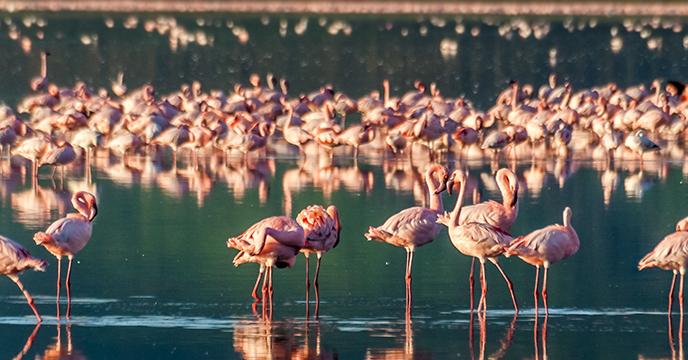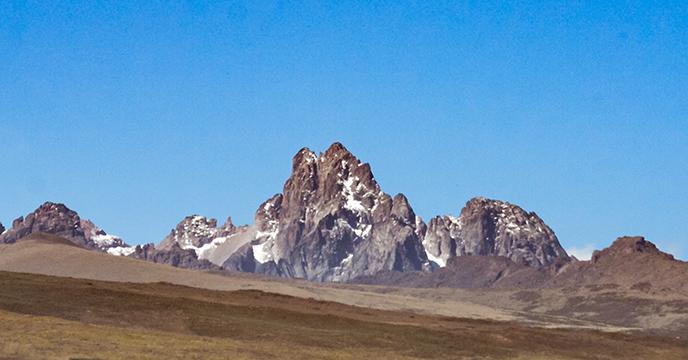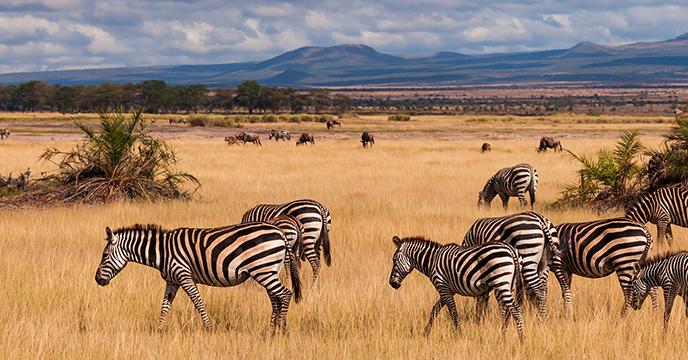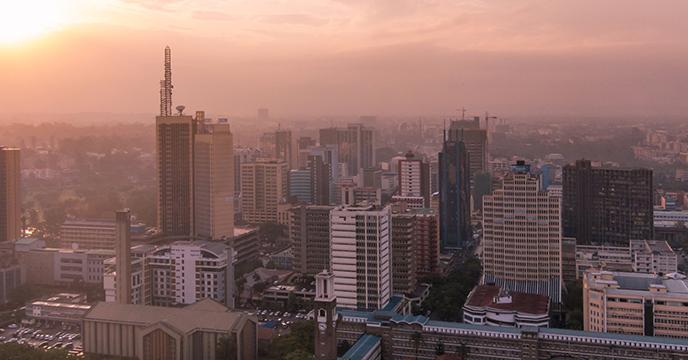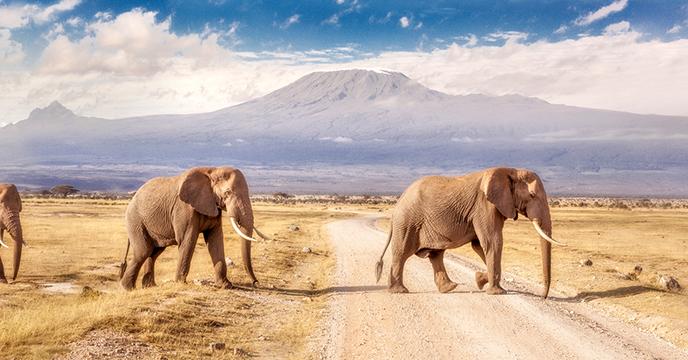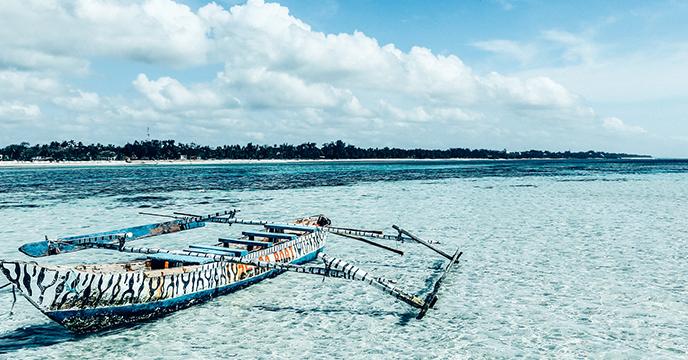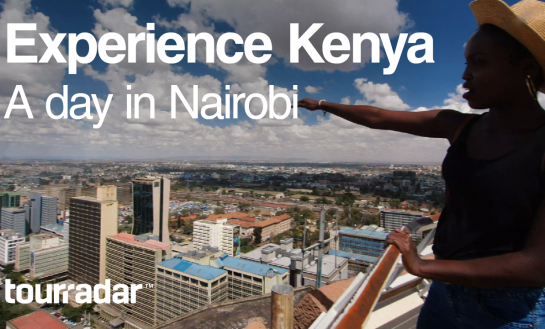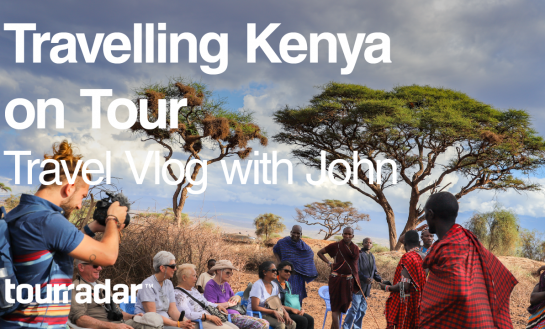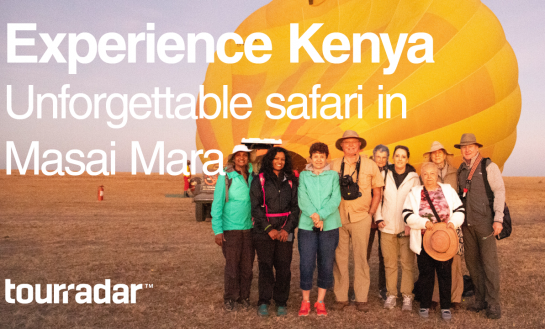
Kenya Travel Guide
Kenya is a complete sensory overload. From the thundering sounds of wildebeest running across the Maasai Mara to the scent of fragrant Ugali food flowing from local restaurants or the sounds of traffic in Nairobi, this nation is one that beckons with sights, cultural experiences and natural wonders to be explored. It’s time to experience the very best of Africa’s raw landscapes in Kenya.
The Highlights
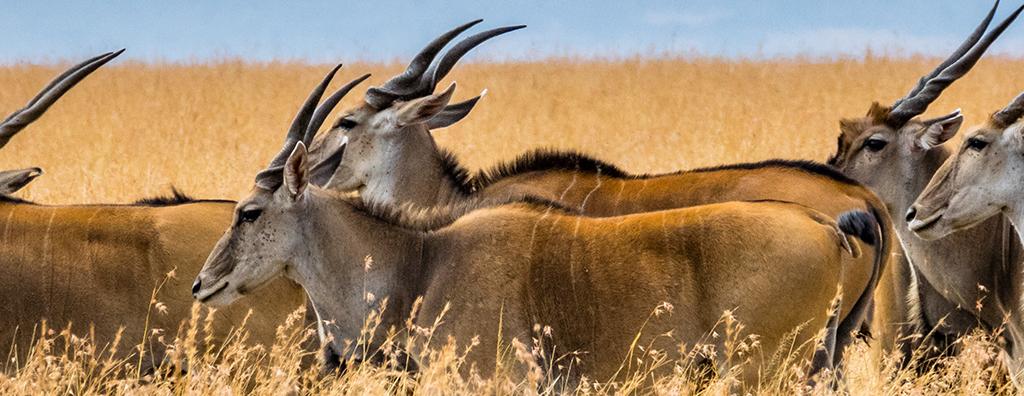

The Basics
The Location
Kenya is located on the continent of Africa and shared borders with Somalia, Ethiopia, Sudan, Uganda and Tanzania along with the Indian Ocean to the east. A flight from London is 8h 45m non-stop and a flight from Dubai is 5h 10m.
Capital City
Nairobi is the capital of Kenya and is home to over 3 million people.
Main Airport
Jomo Kenyatta International Airport in Nairobi is the major hub for international and domestic travellers. It is located 15 kilometres from the city centre.
- Code
- NBO
- Closest City
- Nairobi
Language Spoken
The official language of Kenya is Swahili, and English is widely spoken. While you’re in Kenya, learning a few words of Swahili will be much appreciated by locals.
Currency
Kenya uses the Kenyan shilling. The currency code is KSH. ATMs are common, however best to carry cash from home to exchange at the bank in case you get stuck.
Visas
Visas are needed by most visitors and can be applied for online via an E-visa scheme. Visa information can change often and varies from country to country. We recommend checking your country's travel advisories in advance of booking a trip.
Electricity
Electrical current is 240V/50hz using a type G plug. The standard voltage in the US is 110 volts, so you may need a surge adaptor.
Vaccinations
Typhoid, Hepatitis A and B and antimalarial tablets are advised and you will need proof of Yellow Fever vaccination if travelling from a high-risk area. Consult your doctor 6 to 8 weeks before you travel.
Emergency Calls
In Kenya, the emergency number is 999 for police, fire or ambulance.
When to Visit

Kenya Tours
FAQs about Kenya
Do you tip in Kenya?
In Kenya, there are no hard and fast rules for tipping, but it is recommended to leave a tip of 10% in a restaurant. Safari guides should be tipped at least USD $10-15 per person per day along with a tip to the driver, chefs and porters.
What is the internet access like?
Internet connection can range in quality, but you should have no problem with day-to-day tasks like emailing or surfing the web in Kenya. WiFi is available in many cafes, hostels and hotels for free, but outside urban areas, this is not as common.
Is the tap water safe to drink?
No. Buy bottled water, or you can boil the tap water or use water purification pills.
Can I use my credit cards?
Both Visa and MasterCard are widely accepted in Kenya. Please check with your bank about any foreign transaction charges.
What are the public holidays?
Along with common public holidays such as New Year’s Day, Christmas and Good Friday, Kenya celebrates Labour Day on May 1, Madaraka Day on June 1, Eid Al Fitr at the end of Ramadan, Moi Day on October 10, Mashujaa Day on October 20 and Jamhuri Day on December 12.
Is it safe to travel solo in Kenya?
Most people visit Kenya as part of a safari tour or similar which makes for a much safer experience as there will be there the guide with you for most parts. Travelling independently might be a more challenging experience and this depends on your experience and comfort levels.
What are the toilets like?
Toilets can vary greatly depending on where you are in Kenya. In major cities and tourist hot-spots, you will encounter Western-style toilets. If you are camping or travelling in rural areas, be prepared to squat over a long-drop toilet or straight in the bush when nature calls.
What should I pack for a trip to Kenya?
You will want to wear comfortable clothes that are preferably of a darker colour due as you will be travelling along dusty roads and camping on safari. The temperature will be warm so it will be best to wear natural fibers such as cotton, but don’t forget layers for when the temperature drops.
